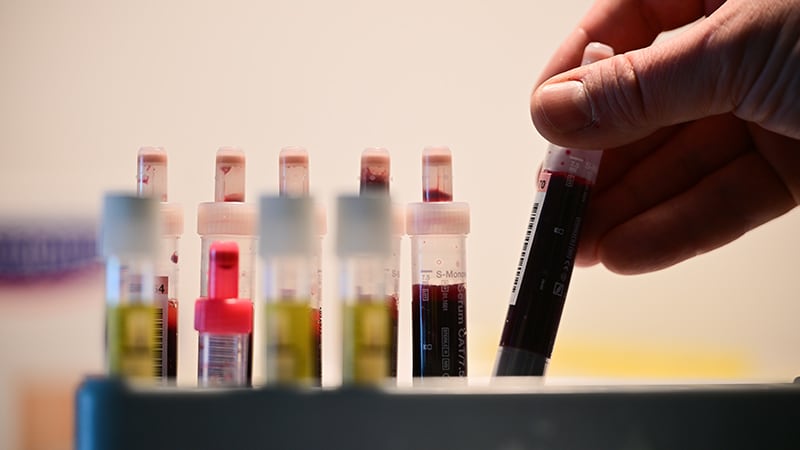Experts are expressing relief that the US President’s Emergency Plan for AIDS Relief (PEPFAR), a $7.5 billion program credited with saving 26 million lives around the world from HIV, was spared millions of dollars in spending cuts.
Last week, the US Senate removed a proposed $400 million reduction in PEPFAR funding from the $9 billion rescission package put forward by President Donald Trump after objections from Democrats and a handful of Republicans.
The PEPFAR program, which was set up by President George W. Bush in 2003, provides treatment to two thirds of all patients with HIV across more than 50 countries and has allowed almost 8 million babies to be born healthy to mothers with HIV.
“This isn’t a full reset, but it’s meaningful,” Jirair Ratevosian, DrPH, a former senior advisor to PEPFAR, told Medscape Medical News. Members of both parties in Congress have found the administration’s justifications for the cuts to be deceptive, he added. The blocking of the cuts is “also a sign that Congress is willing to exert oversight and send a clear message globally: The US is not walking away from the HIV fight.” Ratevosian is an associate research scientist at Yale University in New Haven, Connecticut, with a primary focus on HIV prevention.
“It gives PEPFAR breathing room to continue planning country transitions — something the Trump administration claims to prioritize — and to support innovative programming, including HIV prevention using AI [artificial intelligence],” Ratevosian said.
PEPFAR’s Future Uncertain
But while activists and experts welcomed the news, the future of the program remains uncertain. It is now administered by the US State Department, with little detail about how and where services will be delivered.
“The decision is a testament to the power of global health activism, but it is important to realize that all this does is ensure that $400 million that had already been allocated to be spent on fighting HIV doesn’t get spent by Trump,” Asia Russell, executive director of Health GAP, an international organization focused on access to HIV medicines, told Medscape Medical News.
Some organizations that are implementing PEPFAR have taken Trump’s budget cuts to indicate that they should stop intervening among priority populations like trans patients, gay men, and sex workers. “Any effective infectious disease response must focus on communities who have an elevated risk of HIV acquisition or poor clinical outcomes.”
In a recent report, the Joint United Nations Programme on HIV and AIDS (UNAIDS) said that the weakening aid consensus and significant and abrupt funding shortfalls in the HIV response had triggered widespread disruption across health systems, halting HIV prevention programs and jeopardizing treatment services. UNAIDS predicted an additional 6 million new HIV infections and 4 million additional AIDS-related deaths worldwide between 2025 and 2029 resulting from the collapse of US funding.
Ukraine has an estimated 245,000 patients with HIV, which is the second highest prevalence in Europe after Russia. Dmytro Sherembey, head of Ukraine’s largest patient-led HIV organization, 100% Life, told Medscape Medical News that his organization had been forced to cut its expenses by 30%. He credits his own survival of HIV to US aid.
“These past few months have been incredibly difficult. Amid the war in Ukraine, we faced the terrifying risk of losing essential funding from PEPFAR. Prevention, awareness, advocacy, and community support programs — key drivers in the HIV response — were hit the hardest,” he said.
“The decision [not to cut funding] brings hope and stability. It means children won’t lose parents, parents will have healthy babies, and people in Ukraine will keep accessing life-saving care.”
Additional Threats Remain
In April, UNAIDS said that Ukraine’s national preexposure prophylaxis (PrEP) program was at high risk because of halted procurement. Its current supply is expected to be exhausted by mid-August 2025.
“In Ukraine, we count on the US decision that PEPFAR will continue to fund PrEP,” Andriy Klepikov, PhD, executive director of the Alliance for Public Health, told Medscape Medical News. The Alliance for Public Health is one of the largest HIV-focused nongovernmental organizations in Ukraine and the wider region.
“We hope that PEPFAR will continue PrEP for key populations (not only for pregnant and breastfeeding women), but there is no confirmation yet,” he added.
But while PEPFAR has been spared, additional threats to the global HIV response remain. The United States Agency for International Development (USAID) has been dismantled, the administration has cut nearly $1 billion in HIV funding at the National Institutes of Health, and the CDC’s Division of HIV Prevention has been cut significantly.
“There’s no sign that the funding of USAID will be restored. Much of the local support for HIV was funded by USAID, such as HIV testing, outreach workers, and support for key populations,” said Andrew Hill, MD, PhD, senior visiting research fellow in the Department of Pharmacology and Therapeutics at the University of Liverpool, Liverpool, England.
He cited a recent The Lancet paper that suggested that ongoing deep funding cuts could result in more than 14 million additional deaths by 2030. “If 14 million people do indeed die early as a result of US cuts, this would be the greatest loss of life from any US presidency since World War II.”
Ratevosian, Russell, Sherembey, Klepikov, and Hill reported having no relevant financial relationships.
Source link : https://www.medscape.com/viewarticle/pepfar-spared-concerns-about-global-hiv-response-remain-2025a1000jh4?src=rss
Author :
Publish date : 2025-07-23 10:21:00
Copyright for syndicated content belongs to the linked Source.
